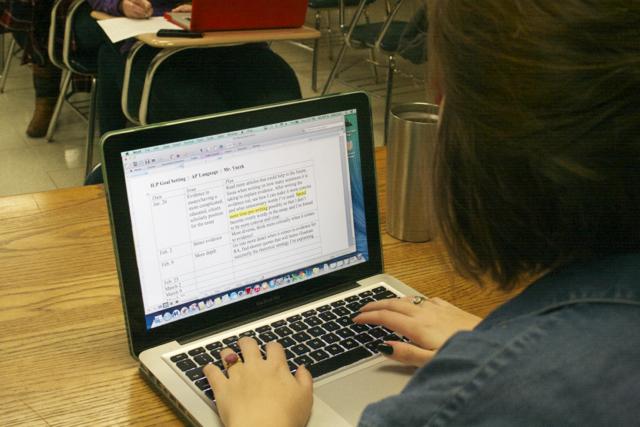Students, teachers adjusting to new ILP schedule
Teachers are using a variety of different formats to introduce Individual Learning Plans.
February 12, 2015
The Individual Learning Plan period, better known as ILP among students, is a new scheduling device implemented this semester as a means to help students monitor their own learning and individually improve in their classes.
Each class period is given an extra 30 minutes each week to give students the opportunity to evaluate their learning and work on topics they may be struggling with.
“ILP has the potential to be very helpful to students who are struggling in classes and are unable to attend after school tutoring,” junior Casey Thornton said.
While the schedule is new for students, it is also new for teachers. Many teachers are experimenting with different ways to cater to their students needs during this extended class period each week.
Marine Ecology teacher Ms. Noelle Turner has created an ILP module on Canvas in order to help students practice in the areas they need specifically.
“In [marine ecology] what we’re trying to do is learn to look at our standards, what am I supposed to learn, what have I succeeded on, what could I do better on, and then if those are all mastered, what can I expand upon either in this class or in another class, but relate it through marine ecology,” Ms. Turner said.
When the new schedule was first implemented, many students were upset to learn that it would replace early release. While the controversy regarding the schedule change has calmed to a certain extent, it is still receiving mixed emotions from students.
“I feel like ILP only helps certain classes,” senior Katya Bobrek said. “I feel like for most classes, ILP can’t help with what we’re learning like with my AP classes.”
It seems to be a common consensus that ILP still contains some kinks that could be fixed.
ILP is still a fairly new scheduling device, and although it still faces some opposition from students, many have warmed up to it greatly from its initial opposition. The effectiveness of ILP remains unclear at this point due to the recentness of its implementation.
